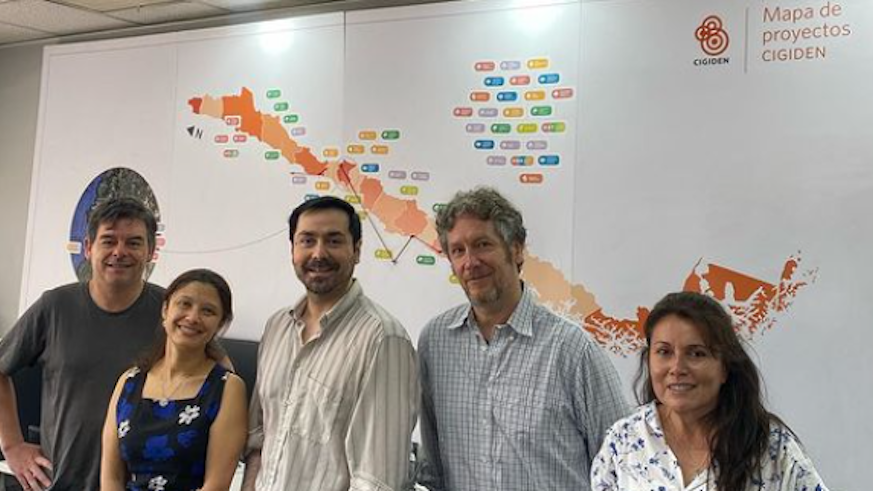Dr Diana Contreras Mojica shares post-disaster recovery insights during Chile visit
26 February 2024

In the wake of disasters like the Maule earthquake of 2010, the intricacies of disaster preparedness, response and reflection become paramount.
Dr Contreras’s journey to CIGIDEN (Research Centre for Integrated Disaster Risk Management or CIGIDEN, by its acronym in Spanish) offered a unique opportunity to delve into the country's progress in risk reduction measures, as well as provide her expert insight on valuable lessons for global disaster preparedness.
Dr Contreras shared preliminary results of data analysis from social media related to the tenth anniversary of the 2010 Maule earthquake. This analysis started on the framework of the project Learning from Earthquakes (2016-2023) led by Newcastle University, University College of London and Cambridge University. Through an analysis of tweets posted during the 10th anniversary of the Maule earthquake and tsunami of 2010, Dr Contreras evaluated the progress of the recovery process based on the perception of social media users. She compared results with the same analysis for the 10th anniversary of earthquakes in L'Aquila, Haiti, and the fifth anniversary of Gorkha earthquake in Nepal. She expect to compare these results with the results of the same analysis for the tenth anniversary of the earthquake in Christchurch in New Zealand and Tōhoku in Japan. This analysis aims were to systematically identify the success and failure elements of post-disaster recovery processes after earthquakes.
CIGIDEN was established in 2011 and is funded by the Chilean government, with offices in Santiago, Vi ñ a del Mar and Conception. As a Centre, it has emerged as a beacon of research and innovation in disaster risk management, previously receiving the Hamaguchi Prize from the Japanese government for its significant contributions to the enhancement of coastal resilience against tsunami, storm surge and other coastal disasters.
Echoing the interdisciplinary approach embraced by leading institutions like the one here at the School of Earth and Environmental Science at Cardiff University, CIGIDEN's mission is crystal clear: to generate excellence in knowledge aimed at preventing natural events from spiralling into catastrophic disasters. The Center's multifaceted research areas include solid earth processes, surface water dynamics, and risk and resilience analysis. Chile is located in the Pacific Ring of Fire in the extreme south of South America. This location results in a high seismic hazard potential. Besides tsunamis, Chile is exposed to volcanic eruptions, floods, landslides, droughts, and pandemics, which presents unique challenges for government in terms of preparedness and planning.
Dr Contrera's visit to CIGIDEN, where she was a r post-doctoral researcher, served as a catalyst for knowledge exchange and collaboration. Immersed in the Center's research endeavors and leveraging insights garnered from years of experience, Dr Contreras engaged in fruitful discussions with CIGIDEN's team of experts.
Recognizing the interconnected nature of disaster risk, knowledge exchange between institutions such as CIGIDEN, Cardiff University and further universities abroad is crucial to advancing collective efforts to mitigate the impact of natural hazards. Here in Wales, with our vast and varied countryside, post-industrial landscape, and the encroaching effects of anthropogenic climate change, multi-level hazard planning is essential to protecting our security and ensuring our longevity.
Researchers at Cardiff University have recently been awarded £2 million by the Lloyds Risk Register Foundation, which aims to study, create and support low-income households with multi-hazard planning, after research revealed that a majority of people in just 14 of the 121 countries and territories polled said they have a plan all their household members know about in case of a disaster.
Dr Contreras Mojica is a Lecturer in Geospatial Science within the School of Earth and Environmental Sciences, where her areas of expertise span disaster management, earthquake reconnaissance and vulnerability assessment as well as resilience and climate change adaptation.